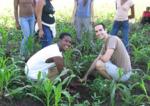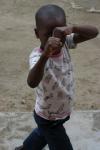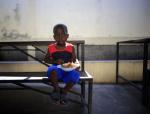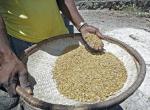Reforestation in Haiti - Can the Young Lead the Way?
 Jule Hanus from the Art of Living Foundation sent us a video clip featuring a Youth Leadership Training Program which incorporates music, dance, yoga, and environmental preservation. Take a look at it by clicking here. Even when the Haitian government (someday) releases a strategy and appeals for funds to support nationwide reforestation communities will do the heavy lifting. In a country, where almost half the population is under fifteen years of age, there are many opportunities to involve the young in reforestation.
Jule Hanus from the Art of Living Foundation sent us a video clip featuring a Youth Leadership Training Program which incorporates music, dance, yoga, and environmental preservation. Take a look at it by clicking here. Even when the Haitian government (someday) releases a strategy and appeals for funds to support nationwide reforestation communities will do the heavy lifting. In a country, where almost half the population is under fifteen years of age, there are many opportunities to involve the young in reforestation.











